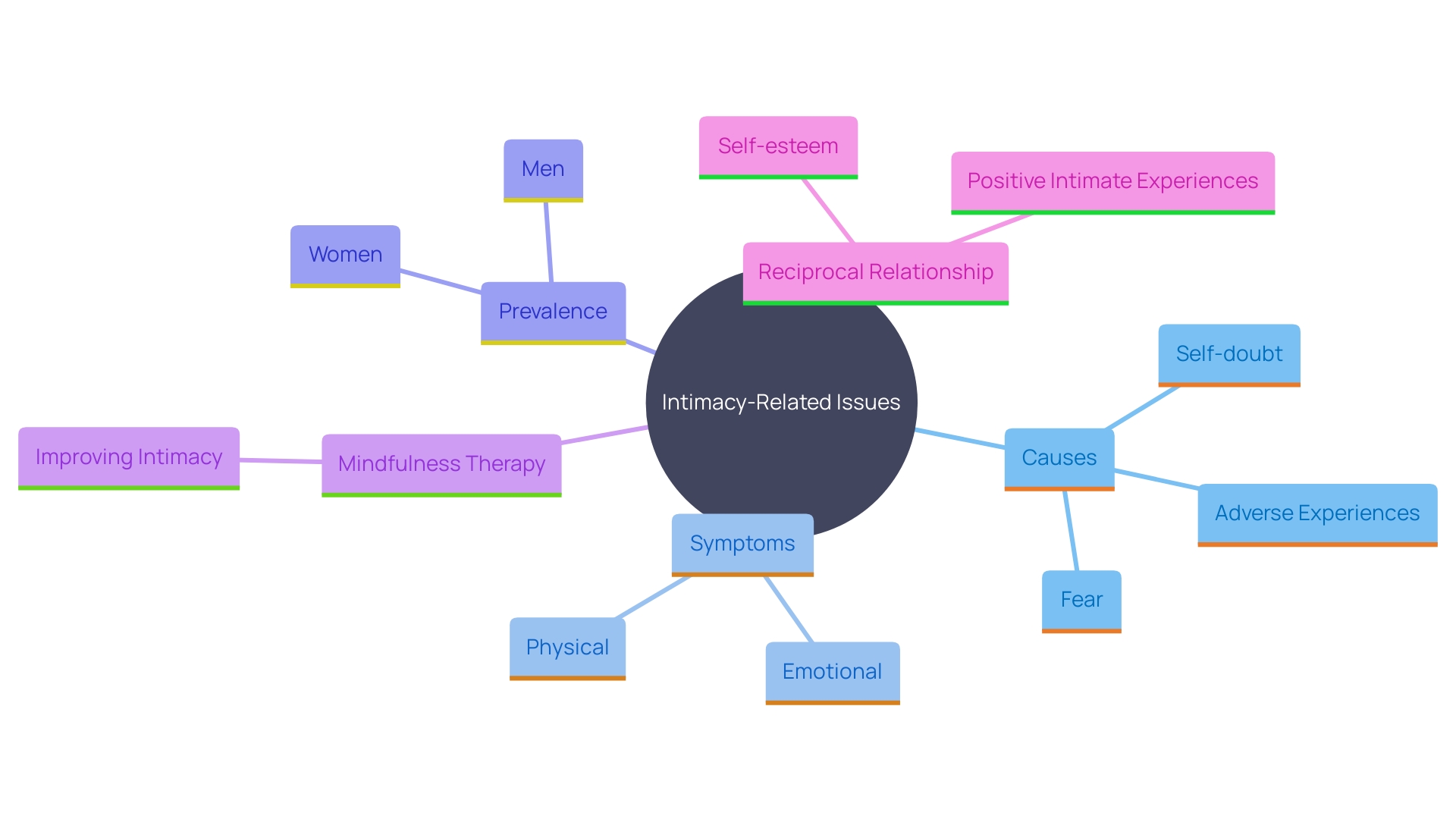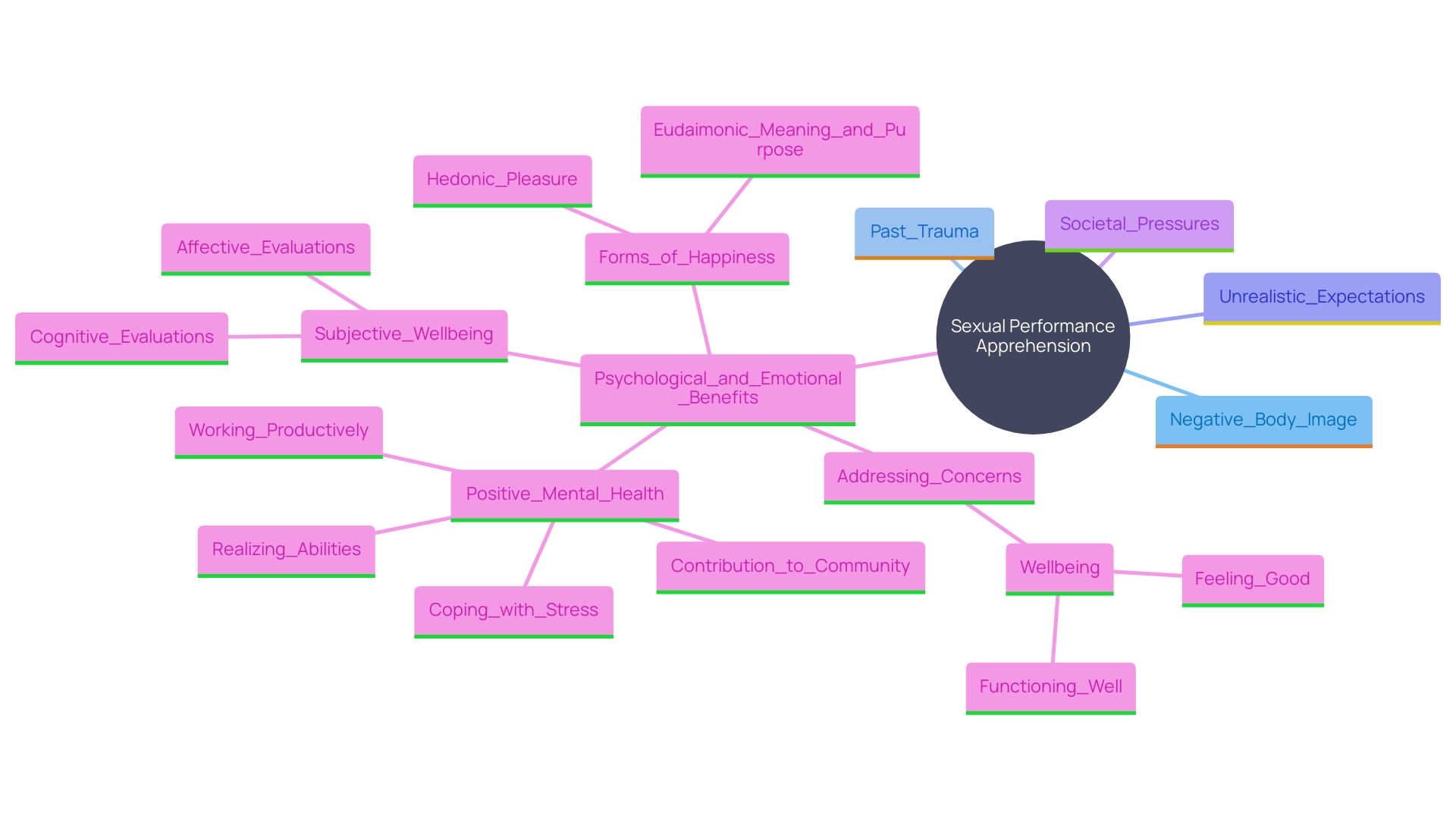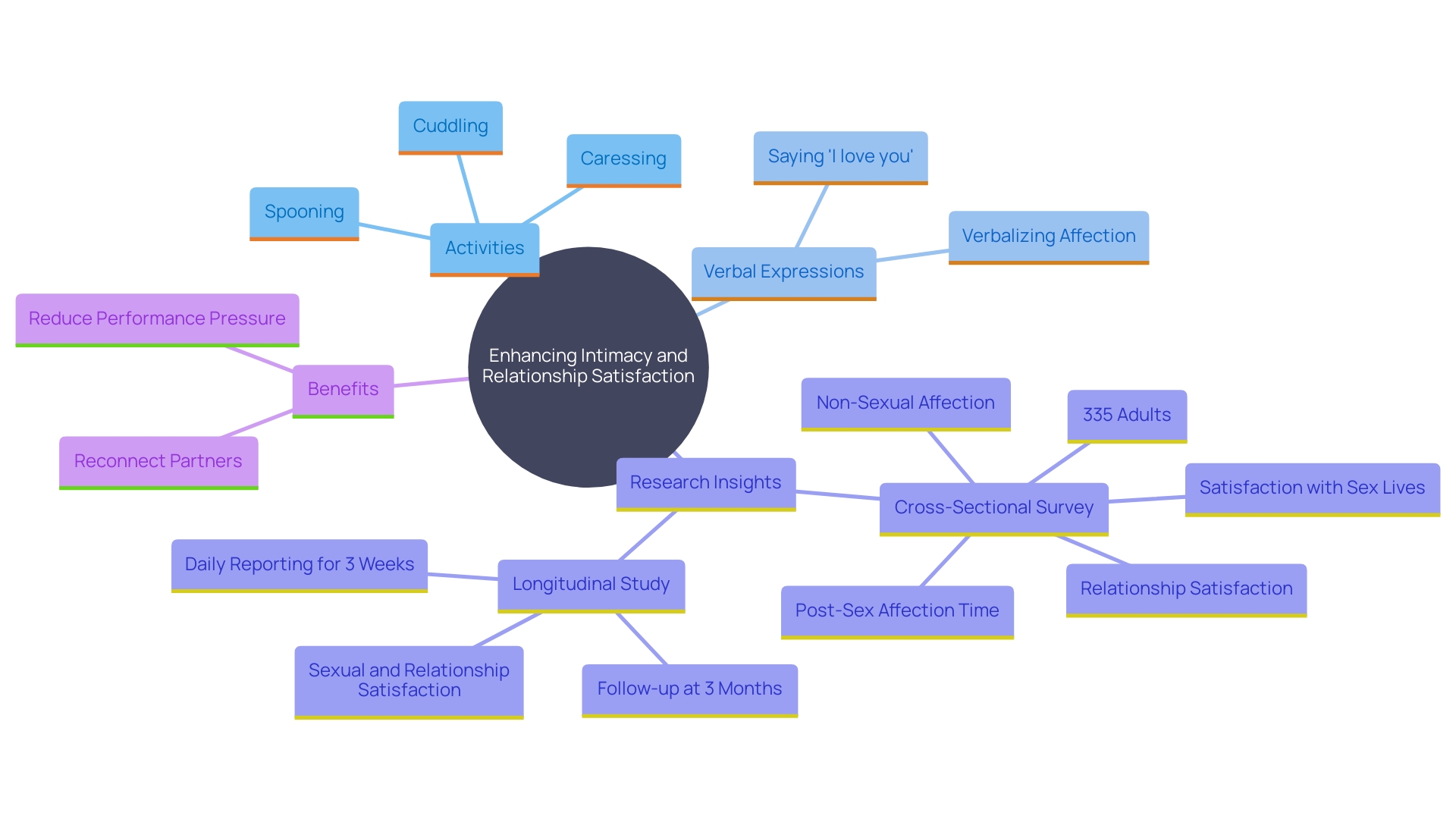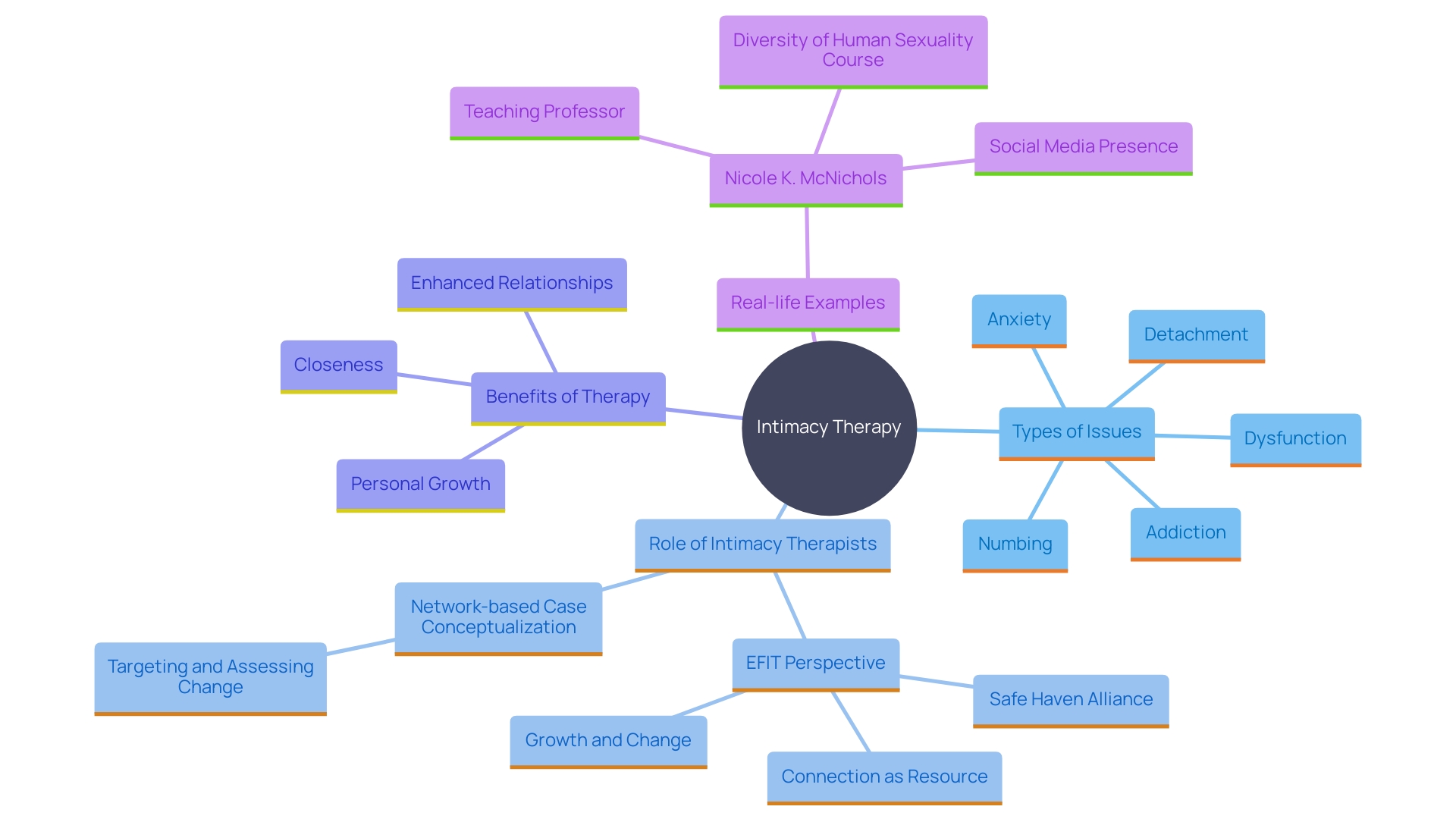PLEASE NOTE:
While the following article relates to your Google search, the services and methods at Goodwin Hypnosis may differ from those mentioned below. Since 2007, we have helped thousands of clients to overcome emotional and behavioral challenges when all else had failed. According to many of them (and their referring healthcare providers), our methods are faster than talk therapy, easier than willpower, and safer than medication. If you’re ready to resolve your issues, skip the article and visit the rest of our website, where you can learn about our unique approach, watch client testimonial videos, and discover how working with us one-on-one could be the solution you’ve been searching for.
Introduction
Sexual anxiety is an experience that touches many lives, often rooted in fear, self-doubt, or past negative encounters. These feelings can manifest both physically, with symptoms like a rapid heartbeat, and emotionally, leading some to avoid intimacy altogether. Understanding the prevalence of sexual performance anxiety—impacting up to 25% of men and 16% of women—is a crucial step in addressing it.
Recognizing that these feelings are normal and their significant impact on relationships is essential for healing.
Exploring mindfulness therapy, which merges meditation with psychological strategies, offers a promising path to managing this anxiety. Studies reveal that mindfulness practices not only enhance sexual function but also improve overall sexual life quality. This highlights the intricate connection between self-esteem and sexual satisfaction, emphasizing the importance of addressing both emotional and psychological aspects for a fulfilling intimate life.
Through understanding and addressing the root causes, one can foster a healthier, more confident approach to intimacy.
Understanding Sexual Anxiety
Sexual discomfort is a common experience affecting both individuals and couples. It frequently arises from fear, self-doubt, or previous adverse experiences connected to closeness and performance. This unease can manifest through physical symptoms such as a rapid heartbeat or sweating and lead to emotional distress, causing some to avoid intimacy entirely. Research shows that performance stress related to intimacy is more prevalent than most acknowledge, impacting as many as 25% of men and 16% of women. Understanding these feelings are normal and recognizing their impact on relationships is crucial.
Mindfulness therapy, which integrates meditation with psychological techniques, has demonstrated potential in managing anxiety and enhancing intimacy performance. A study involving 93 women revealed that mindfulness practices could significantly enhance the quality of intimate life. These insights highlight the dynamic interplay between self-esteem and intimacy satisfaction. Positive intimate experiences can boost self-esteem, which in turn can enhance overall well-being. This two-way connection emphasizes the significance of tackling both emotional and psychological factors to conquer intimacy-related stress.

Identifying Causes of Sexual Anxiety
To effectively address sexual concerns, it’s crucial to identify its root causes. Sexual performance apprehension is more prevalent than you might anticipate, impacting up to 25% of men and 16% of women. These causes may include negative body image, past trauma, unrealistic expectations, or societal pressures related to performance. Reflecting on personal experiences and triggers can help illuminate specific areas that contribute to anxiety. Certified sex therapist Theresa Callard-Moore, PhD, emphasizes the importance of understanding these factors to approach feelings with compassion and address the underlying issues rather than just the symptoms. By nurturing comfort and confidence with intimacy and intimate interactions, individuals can feel more secure and at ease, promoting a more fulfilling experience. 'Participating in intimate activity, both solo and partnered, provides psychological and emotional advantages, such as enhanced self-esteem, improved sleep quality, and decreased stress.'. This holistic approach not only enriches sexual relationships but also contributes to overall well-being.

Mindfulness and Relaxation Techniques
Practicing mindfulness and relaxation methods is very effective in lowering stress levels. Mindfulness, which emphasizes being fully present and observing experiences without judgment, helps individuals focus on the here and now. Techniques such as deep breathing, progressive muscle relaxation, and guided imagery are particularly beneficial. These methods calm both the mind and body, fostering a safe environment for intimacy. Regular practice of these techniques can significantly improve physical and mental well-being. According to various studies, mindfulness practices have been shown to enhance emotional regulation, reduce stress reactivity, and alleviate symptoms of anxiety and depression. For instance, mindfulness therapy, which merges meditation with cognitive-behavioral techniques, has been discovered to enhance intimacy functioning and overall quality of life. It's important to note that these techniques may require some time and patience to master, but their benefits are well worth the effort. If you encounter difficulties, seeking guidance from a mental health professional can be very helpful.
Focusing on Sensuality Rather Than Performance
Redirecting attention from performance to sensuality can reduce pressure and improve closeness. Engaging in activities that promote connection, such as cuddling, spooning, or caressing each other, can build trust and comfort. Verbal expressions of affection, like saying "I love you," also play a crucial role. Research suggests that the more time couples spend on post-sex affection, the more satisfied they are with their sex lives and relationships. One study involving 335 adults found that increased post-intimacy affection, including both physical and verbal expressions, significantly boosted intimacy and relationship satisfaction. This method enables partners to reconnect with joy and closeness in a manner that feels secure and pleasurable, lessening concerns related to performance expectations.

Seeking Professional Help
For those having difficulty managing intimate apprehension independently, pursuing expert assistance can be a beneficial move. Certified intimacy therapists, who have completed extensive training in health, sexuality, and pleasure, are equipped to help with a variety of issues such as anxiety, dysfunction, difficulty orgasming, or pain during penetration. They provide guidance and support tailored to individual needs, helping to uncover deeper issues, teach coping strategies, and facilitate open discussions about intimacy.
Therapy can significantly enhance the quality of one's intimate life. Studies show that sexual performance anxiety affects up to 25% of men and 16% of women, highlighting the commonality of the issue. As Dr. Kate Balestrieri, a licensed psychologist and sex therapist, notes, a common concern is whether one is normal or broken. This is where the expertise of a certified sex therapist becomes invaluable, offering reassurance and practical strategies to enhance confidence and intimacy.
Real-life examples, such as actress and filmmaker Merle O’Neal, who sought the help of a sex therapist after feeling discomfort around sex and her body, illustrate the positive outcomes of professional intervention. Whether addressing a specific crisis or aiming to feel more confident in the bedroom, sex therapists can help individuals and couples achieve a healthier relationship with themselves and their partners.

Conclusion
The exploration of sexual anxiety reveals its widespread impact on individuals and couples alike. With up to 25% of men and 16% of women experiencing these feelings, recognizing that such anxiety is a common issue is the first step towards healing. Understanding the roots of this anxiety, whether stemming from negative body image, past traumas, or societal pressures, allows individuals to approach their experiences with compassion.
By nurturing comfort with sexuality and addressing both emotional and psychological aspects, a more fulfilling intimate life can be achieved.
Mindfulness and relaxation techniques emerge as effective tools for managing anxiety, promoting a sense of presence and calm. Engaging in practices like deep breathing and guided imagery not only alleviates symptoms but also enhances overall well-being. Shifting the focus from performance to sensuality fosters deeper connections, reducing pressure and encouraging enjoyment in intimacy.
The benefits of prioritizing connection and affection over performance expectations can lead to improved sexual and relational satisfaction.
For those who find self-help insufficient, seeking professional support from certified sex therapists can provide invaluable guidance. These experts offer tailored strategies to address sexual anxiety, helping individuals and couples navigate their unique challenges. The journey to overcoming sexual anxiety is one of understanding, compassion, and connection, ultimately leading to a healthier and more confident approach to intimacy.
Embracing this path fosters not only personal growth but also strengthens the bonds between partners, paving the way for a more satisfying sexual life.




